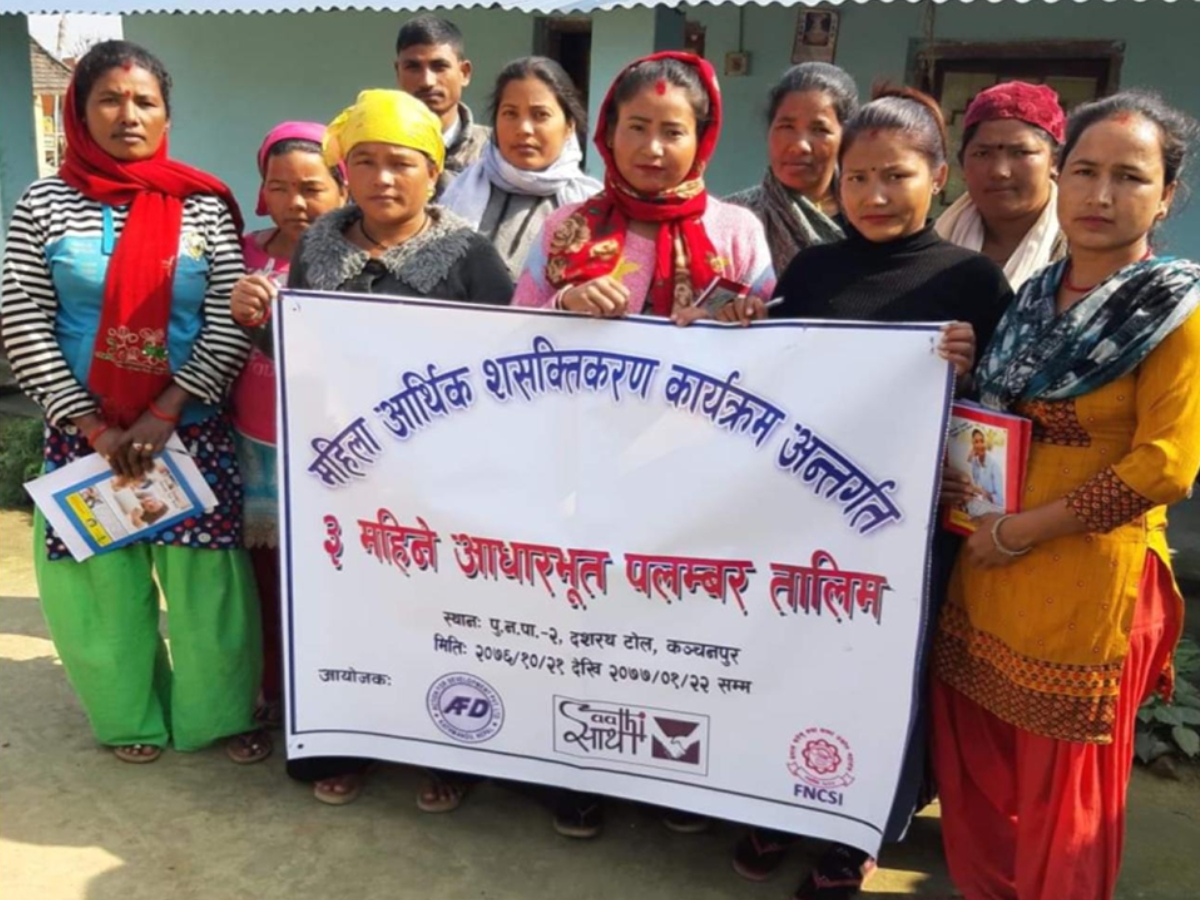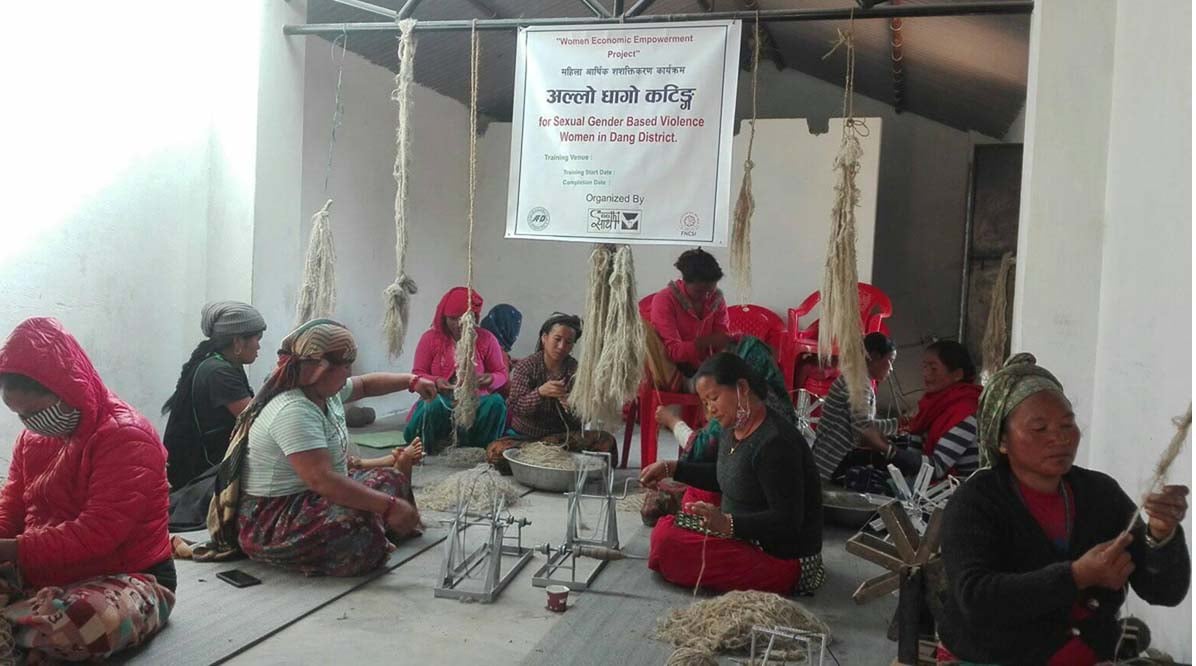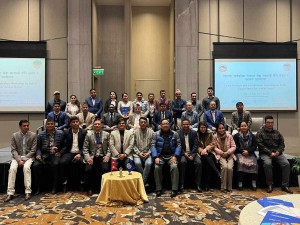
The Women Economic Empowerment (WEE) Project- The Royal Norwegian Embassy

The Women Economic Empowerment (WEE) Project, implemented by Action for Development (AfD) with funding from The Royal Norwegian Embassy, aimed to empower 600 survivors of sexual and gender-based violence (SGBV) through vocational training and sustainable employment opportunities. Spanning from December 2017 to November 2020, the project focused on enhancing the socio-economic status of SGBV survivors by providing skills training, psychosocial counselling, post-training support, and job linkage. Employment for the trained GBVs is the cornerstone of this ambitious project.
Employment for the trained GBVs is the cornerstone of this ambitious project.
Over the three-year period, a total of 600 SGBV survivors aged 14 to 44 from provinces 5, 6, and 7 in Dang, Banke, Bardia, Kapilbastu, Kanchanpur, Kailali, Surkhet, Dailekh, and Achham of Nepal were trained in 19 different trades, including Mobile Phone Repairing, Masonry, House Painting, Tailoring, Beautician, Building Electrician, Poultry Farming, Garment Making, Plumbing, Motorcycle Repair, Fast Food, Cooking, Housekeeping, Off-season Vegetation, Goat Rearing, Pig Rearing, LED Bulb Making, and Allo (Nettle) Weaving. For the agricultural training participants, seed money was provided to start their agricultural journey; for the non-agricultural training participants, linkage with the local business was done; and the fast food and cook training participants were given a portable food cart to start their business.
Despite the challenges posed by COVID-19, which impacted the job market and training delivery, the project achieved significant success. Of the 600 trained participants, 510 (85%) were found to be either employed or self-employed. Notably, those  involved in agricultural trades such as Goat Rearing remained least affected by the pandemic, commanding premium prices for their products in the market as they were also provided with 10-15 days of refresher training.
involved in agricultural trades such as Goat Rearing remained least affected by the pandemic, commanding premium prices for their products in the market as they were also provided with 10-15 days of refresher training.
The project not only provided technical skills but also included additional refresher trainings, and business and life skills training to ensure comprehensive support for the participants. This holistic approach was designed to enhance the economic and social well-being of the SGBV survivors, empowering them to leave abusive situations and achieve self-reliance.
AfD established formal partnerships with private sector businesses to facilitate job placements for the graduates. We also distributed training completion certificates to all participants, further aiding in their employment prospects. The project successfully changed the mindset of many participants towards wage employment and work in the formal sector, despite initial reluctance from the participants and their guardians.
In summary, the WEE Project successfully trained and supported 600 SGBV survivors, significantly improving their socio-economic status through vocational training and sustainable employment opportunities. AfD had to overcome numerous challenges, including political pressures, logistical issues in remote areas, and the adverse effects of the COVID-19 pandemic, to achieve its objectives and empower a vulnerable segment of the population.



1716882354.jpg)
